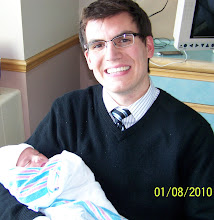- God is omnipotent
- God is wholly good
- Evil exists
In the philosophical discussions it is often tempting to try to resolve this problem without appealing to specific Christian doctrines, but I think that is a mistake. There aren't many who believe in a God that is just omnipotent and wholly good and know nothing else of him or his plan for this world. So, it seems that the problem is directed toward Christian theists and so it should be acceptable to appeal to certain Christian understandings of justice and eschatology in giving an answer to the problem.
During our discussion last night my friend pointed out that many people are glad they exist even if they have experienced a great amount of evil. I think that is a really important thing to keep in mind. Sure, person X may have experienced a lot of evil, but if X thinks it is better for him to have existed than not, is the problem of evil still as pressing? I wonder how many people would say they really wish they were never born. (On a side note, it would be interesting to study the psychology of a suicidal person. Do they wish they were never born, or just that they don't want to go on living? I think an answer to that will play a role.) As I was reflecting about last night's conversation I began to wonder how this would fit into the Christian's understanding of hell.
I guess if I'm willing to appeal to Christian theology to respond to the problem of evil I also need to deal with difficult parts of that same Christian theology. I'm not exactly sure what the orthodox understanding of hell is, but I'm pretty sure it's not literally fire & brimstone. Either way, it's not a place that anyone would want to be (regardless of their jokes about it). No matter how much evil a person inflicts on earth, eternal punishment for that temporal evil seems to be a bit of an overkill. At some point, would it actually have been better for the person in hell to not have existed? Even if people experiencing evil on earth still are glad they exist, would the person in hell feel the same way? Is the fact that they are in hell because they rejected God and not because they committed evils relevant? My intuitions lead me to think they would not want to have existed at all instead of spending eternity in hell, but that's just my intuitions talking. This, of course, leads to the discussion about whether a wholly good being could annihilate his creation and still be wholly good. The two questions are closely connected, but I just don't know what to say about either at this point.
I would love to hear your thoughts on the subject. Maybe a better understanding of what hell is (and not just what it isn't) would help resolve the problem, but I'm not sure.
